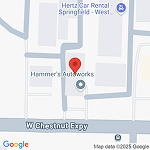Everyone who owns and operates a vehicle is required by law to have liability insurance—the bare minimum auto insurance coverage. But if you are making monthly car payments, you have no option on your auto insurance. You must carry full coverage due to the fact that the bank owns the car—not you.
Full coverage makes sense to most people when discussing newer cars. After all, if you’re dropping upward of twenty or thirty thousand dollars on a vehicle, you want to make sure that vehicle is protected, particularly with today’s increasingly complicated models. This coverage embodies comprehensive, collision repair, and liability insurance all in one, providing you the maximum level of protection in a variety of circumstances. Conversely, it might seem like a good idea to scale back insurance coverage on older model vehicles, or cars you own outright, in order to save some cash every month.
Before you drop comprehensive insurance, understand what you stand to lose in terms of coverage.
Liability insurance protects other people—meaning if you’re in an at-fault accident, your insurance policy will pay for the other party’s damage. It will not, however, pay for yours. In order for liability insurance to cover auto repair or medical costs associated with a crash, the other driver would need to be deemed at-fault. They would also need to have their own liability insurance policy, which they should by state law. However, as we all know, just because they should doesn’t necessarily mean they do.
To make sure your automotive repairs are covered as well, you’d want collision insurance. Collision insurance will also cover single-car accidents, such as run-ins with light poles or curbs.
Comprehensive insurances covers what collision won’t—damage not resulting from a collision. It covers everything: theft, animals (hitting a deer), weather damage (hail, tornado, flood), and fire. It will give you the peace of mind in knowing that if it can happen to your car, you can recover the cost of the car’s value. And yes, while your car’s value will decrease the longer you own it, the insurance payoff in the event your older model vehicle is totaled will come in handy, especially when it comes to making the downpayment on your new ride.
Whichever coverage you decide is best for your budget and car, making an informed decision is best.
Have questions about what to do to file a claim for your auto body repair? Your friends at the Hammer’s Autoworks auto body shop will help you with your insurance claim to make sure your vehicle is fixed properly the first time.

